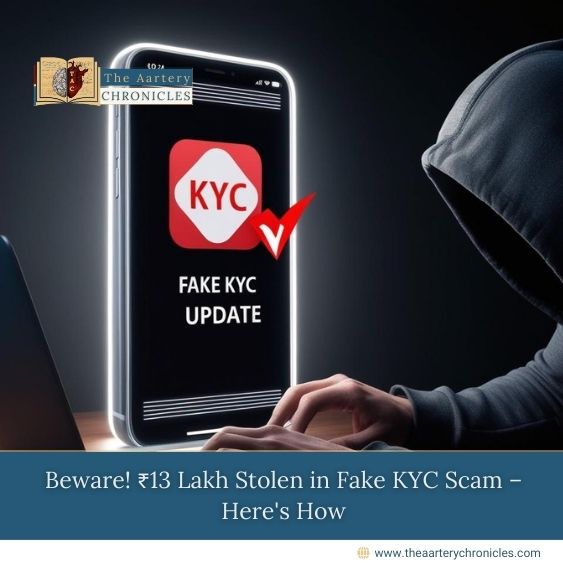

Beware! ₹13 Lakh Stolen in Fake KYC Scam – Here's How
In a shocking cybercrime case, a senior technical officer at the Defence Research and Development Organisation (DRDO) in Pune fell victim to an elaborate scam, losing ₹13 lakh while attempting to update his KYC details. This incident highlights the growing threat of online fraud in India.
The Incident: A WhatsApp Message Turns Costly
In November, the 57-year-old cop got a WhatsApp message that claimed to be from his bank. The message warned that his account would be frozen unless he updated his Know Your Customer (KYC) details. Alongside the message, an attachment was included, purportedly containing the necessary update form.
Believing it to be genuine, the officer downloaded the file. Unbeknownst to him, the attachment contained malware allowing scammers to remotely access his smartphone.
Unauthorized Transactions: A Silent Attack
Shortly after downloading the file, the officer received multiple One-Time Passwords (OTPs) on his phone. Assuming they were unrelated to his activities, he ignored them. During this time, the scammers used the malware to manipulate his banking applications and transfer ₹12.95 lakh from his account.
Upon noticing unauthorized transaction alerts, the officer promptly contacted the Pune City cyber police and lodged a formal complaint at the Yerawada police station.
The Modus Operandi of the Scammers
According to the police, this case follows a recurring pattern in cyber fraud:
- Victims are lured into installing harmful files or programs.
- These files provide the crooks remote access to the victim’s device.
- Scammers then exploit this access to manipulate banking apps and steal funds.
Such incidents serve as a reminder of the need for vigilance while handling messages and attachments from unknown sources.
Safety Tips to Avoid Cyber Scams
- Verify Messages and Emails: Never trust messages or emails from unknown senders claiming to represent banks or service providers. Cross-check their authenticity.
- Avoid Clicking Unknown Links: Do not click on links or download attachments unless you are certain of the sender’s identity.
- Pay Attention to OTPs: If you receive OTPs without initiating a transaction, immediately check your bank account for unauthorized activities.
- Use Reliable Security Measures: Install trusted antivirus software and avoid using public Wi-Fi for banking transactions.
Rising Cybercrime in India
The increasing frequency of cyber fraud cases, such as this one, underscores the urgent need for awareness and preventive measures. Law enforcement agencies and cyber cells continue to issue advisories to educate the public about safeguarding personal and financial information online.
By staying informed and cautious, individuals can minimize their risk of becoming victims of online scams.
Source: Inputs from various media Sources

Priya Bairagi
Published: 2nd January 2025, Reviewed by Dr Aarti Nehra (MBBS, MMST - IIT)
About Author:
I’m a pharmacist with a strong background in health sciences. I hold a BSc from Delhi University and a pharmacy degree from PDM University. I write articles and daily health news while interviewing doctors to bring you the latest insights. In my free time, you’ll find me at the gym or lost in a sci-fi novel.








